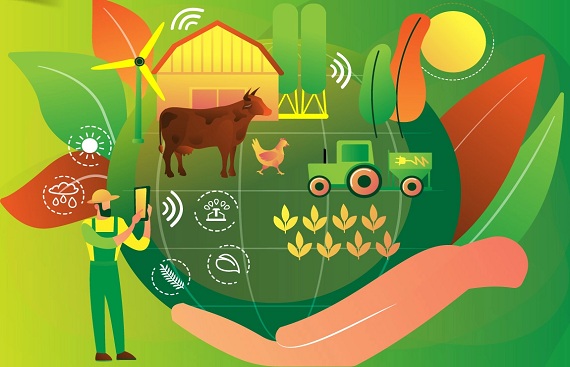Agritech startups secured capital totaling Rs 6,600 crore over last four years
By Team Startupcity | Wednesday, 01 February 2023, 04:09 Hrs

According to the Economic Survey 2022–23, over the last four years, agritech businesses have raised over Rs 6,600 crore from private equity investors, growing by more than 50% annually. According to the Survey, there are over 1,000 such agritech businesses helping farmers advance their farming practises.
Over 500 companies are operating in the millet value chain in India, and 250 firms have been fostered by the Indian Institute of Millets Research as part of the Rashtriya Krishi Vikas Yojana Remunerative Approaches for Agriculture and Allied Sectors Rejuvenation, it was stated.
Farmers employing renewable energy sources like solar for irrigation are helping this concept slowly gain traction. Farmers have received incentives to connect solar-generated electricity to the local grid. Drones and artificial intelligence-based crop yield prediction models have been launched to monitor crop and soil health, according to the Survey.
Crop diversity is made possible through smart farming, and thus lessens the reliance of farmers on the monsoons for water. In India, there are more than 1,000 agritech startups. These aid farmers in honing their farming methods, it was said.
Agritech witnessed 30 fundraising rounds totaling $796 million in the first nine months of 2022, according to a report issued last month by investment banking firm Avendus Capital. Agritech firms' expected gross merchandise value (GMV) was $4 billion in 2022, according to the report, and is predicted to increase to $34 billion by 2027.
In contrast to the 158% rise seen in urban regions, rural internet memberships climbed by 200% between 2015 and 2021, according to the Economic Survey. This trend is indicative of "the increasing impetus the government is placing to bring rural and urban digital connectivity to the same level."
A project for the saturation of 4G mobile services in unconnected villages across the country has been approved, according to the Survey, in order to boost digital linkages at the grassroots level and improve the consumer experience similar to that in urban centres. In addition, 6,279 villages with only 2G/3G access would have their 4G connectivity improved. "The initiative will give 4G mobile services in 24,680 uncovered communities in remote and challenging places," it said.

